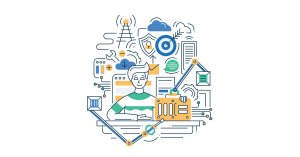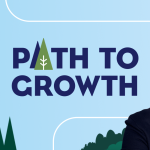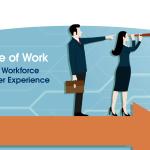There are all kinds of customer service goals you can shoot for, but in the eyes of many major organizations, there’s nothing like Net Promoter Score.
NPS, like customer satisfaction (CSAT) and customer effort score (CES) can be incredibly helpful in making sure you’re developing a strong brand that wins repeat sales. These are the gold standards in terms of metrics, which is why we’ve created this three-part series to look at the impact artificial intelligence (AI) such as Salesforce Einstein, coupled with Service Cloud, will have on helping companies use them.
In our last post, we looked specifically at CSAT and AI to outline some of the opportunities AI can bring to gather more data and derive greater insight. NPS is up next because it’s often cited by large companies such as telecom firms and banks, but the elements behind it could be equally helpful to small and medium-sized businesses. It’s all about knowing who’s in your corner — and whether they’ll willing to go public with it.
The State Of NPS Today
When a service agent asks a question about CSAT, it’s often referring to something in the moment, like the problem or complaint a customer just called about. NPS looks much more broadly by asking the customer to reflect on both their past experience with the company and how it frames the way they speak about it to others.
If you’re unfamiliar with NPS, here’s how it works: an agent will ask the customer a question such as:
On a scale of 0-10 how likely would it be for you to recommend [company name] to a friend or colleague?
The score is calculated by breaking those who offer a high score (the promoters) and those who give low scores (the detractors) and subtracting the totals until you have the final number.
Some sectors are known for having small, even single-digit NPS scores and are constantly working to improve them. The question is, how do you go about it with any certainty? That’s where AI comes in. Just as NPS requires the customer to evaluate their overall customer experience, AI can approach the data around each customer in a holistic way that allows organizations to predict what might move someone from a detractor to a promoter.
Where AI Could Move The Needle On NPS
As with any metric, NPS is the result of how an organization behaves towards its customers on a day to day basis, which means AI can be applied to many activities that shape those customer experiences. For example:
Early Detection Of The Detractors: NPS is really just based on asking the question and getting the rating, but there may be other warning signs that customers won’t be offering a high score. AI can pull in data from non-traditional sources, such as customer sentiment on social media, for example, to fill in gaps around what customers think about a company. There could also be data from how well they engaged with marketing materials — did they bother to fill out the survey you sent? Do they ever share your content with their network? This additional context doesn’t necessarily mean your NPS score will change overnight, but you may be able to get a better sense of how well you’ll be rated by a specific customer before you even ask the question. This gives you time to work harder to get a better result.
Identifying Moments And Places To Attract Promoters: The great thing about NPS is that it looks across all the channels, contact moments and experiences of a particular brand. This could include everything from how the customer hears about new products, services and offers, the way products are priced and packaged and, of course, the way products and services are supported. Agents can follow up from the standard NPS question with a more open one about some of the areas where the company could improve. AI then sifts through the results to learn some of the most commonly-cited areas and helps the organization act accordingly. The result could be real-time changes to bundles, special offers or other incentives that agents can use prior to wrapping up their next service engagement to nudge customers towards a “promoter” position.
Helping Promoters Promote: The most common critique of NPS is that it’s hard to prove promoters will do what they say they’re going to do and actually recommend the company to their friends, family, or other members of a buying team in a B2B organization. Imagine if, instead of simply thanking the promoters and hoping for the best, AI could offer helpful tools to make those recommendations easier. This could include pre-written posts based on the products and services they bought that they should share on their social media accounts or blogs, for instance.
Turning Passives Into Promoters: One of the interesting things about NPS is that those who give a rating in the 7-8 range are not considered promoters but “passives.” They are not included in the final score, because while they might not share negative sentiment they won’t really be helping to grow the company’s reputation. In traditional customer service management, passives tend to be treated as a sort of safe group, but AI would allow companies to segment these customers and look for opportunities to improve their experience and perhaps turn them into a promoter. Think about how data on past purchases, or engagement with various content across the marketing funnel could be filtered through AI to predict when products will need to be upgraded or replaced. AI could also help identify when there is something new to help address their specific pain point, or just content that helps educate and inspire them. Treating passives as a priority may wind up having a bigger long-term impact on your NPS score than you think.
Whether or not you use the formal NPS scoring methodology, it’s always a good idea to know who will proactively sing your company’s praises. The benefit of having AI technology is that it can break down the silos that may create a negative customer experience — and perhaps make your top promoters sing your praises even louder.
Stay tuned for part three of this series, where we examine the potential for AI for companies that measure themselves based on customer effort scores.
Get prepared for a business world with AI. A cutting edge CRM solution can help you. Learn more in our ebook, “AI for CRM: Everything You Need to Know.”


























